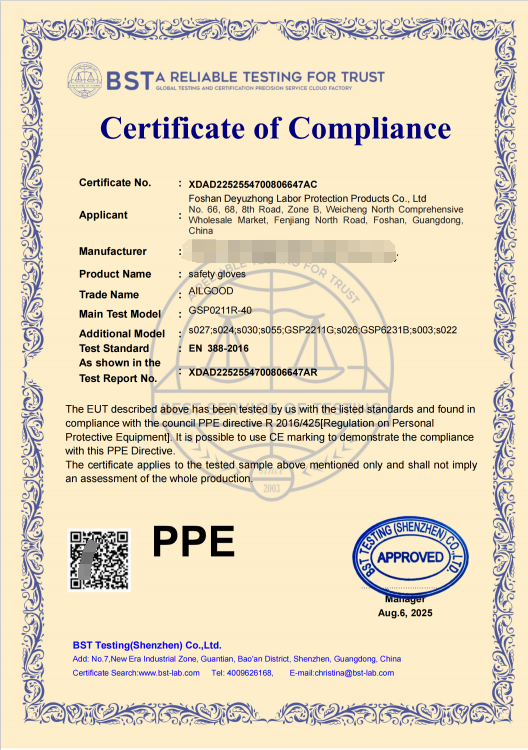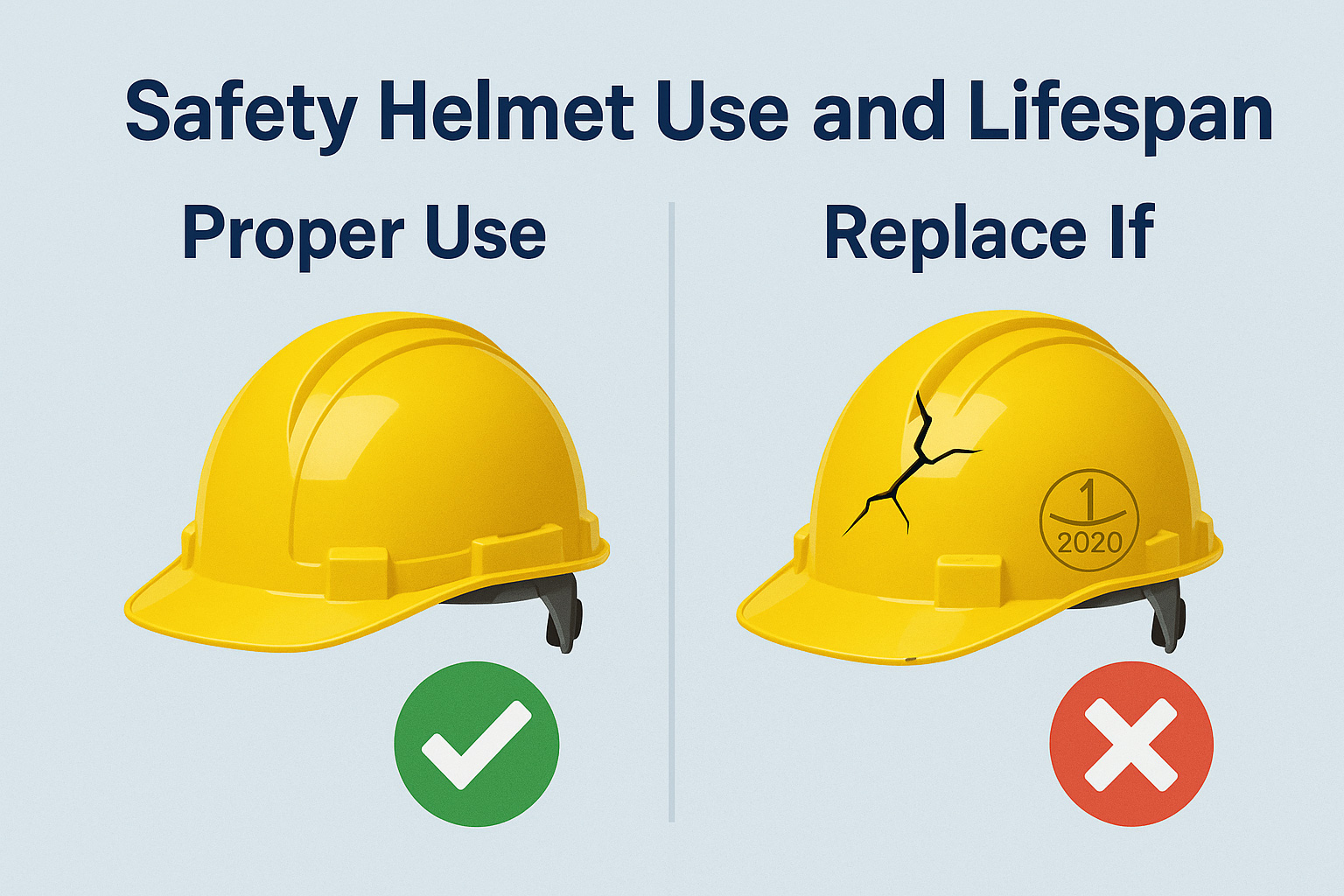How to Choose Chemical-Resistant Gloves: CE Certification + 3 Test Standards
Upload Time:
Sep 01, 2025
How to Choose Chemical-Resistant Gloves for Workshops: CE Certification + 3 Test Standards (Buying Guide)
When it comes to chemical workshops, choosing the right chemical-resistant gloves is not just a matter of comfort—it’s a matter of safety. The wrong gloves can lead to skin burns, allergic reactions, or even long-term health damage. To protect workers effectively, buyers should pay attention to CE certification and international test standards before making a decision.
In this article, we explain what to look for in chemical-resistant gloves, the three main testing standards, and a step-by-step guide to choosing the right pair for your workplace.
Why CE Certification Matters
For industrial protective equipment sold in Europe and many other regions, CE certification is the gold standard. It ensures that the gloves meet the EN 374 regulations for chemical protection. CE-marked gloves are tested for resistance against a wide range of chemicals and must provide proven barrier performance.
Without CE certification, gloves may not provide the protection required in high-risk chemical environments. For companies, this also poses compliance and liability issues.

Three Key Test Standards for Chemical Gloves
When buying chemical-resistant gloves, pay attention to these three testing methods:
-
Permeation Test (EN ISO 374-1)
-
Measures how quickly chemicals pass through the glove material.
-
Gloves are rated from Type A, B, or C depending on resistance against a defined list of chemicals.
-
-
Degradation Test (EN ISO 374-4)
-
Evaluates how the glove material changes when exposed to chemicals (e.g., swelling, brittleness, cracking).
-
Essential for checking long-term durability in daily use.
-
-
Penetration Test (EN 374-2)
-
Checks whether the glove can resist leaks or holes from microscopic defects.
-
Ensures physical integrity against both liquids and microorganisms.
-
By understanding these tests, buyers can match glove performance to the exact risks present in the workshop.
Step-by-Step Buying Guide
-
Identify the Chemicals in Use
-
Make a list of all acids, solvents, and oils handled in your workshop.
-
Check glove compatibility charts against these substances.
-
-
Check CE Certification & EN Standards
-
Look for the CE mark and the EN 374 standard on the packaging or datasheet.
-
Verify the glove’s classification (Type A, B, or C).
-
-
Select the Right Material
-
Nitrile: Excellent for oils, solvents, and abrasion resistance.
-
Neoprene: Suitable for acids and caustic substances.
-
Butyl Rubber: Strong protection against gases and ketones.
-
PVC: Economical choice for acids and water-based chemicals.
-
-
Consider Ergonomics & Comfort
-
For long shifts, choose gloves with breathable linings and flexible design.
-
A good fit reduces hand fatigue and improves productivity.
-
-
Test Samples Before Bulk Orders
-
Always request samples to check comfort, dexterity, and resistance.
-
Real-life testing ensures the glove meets actual workshop demands.
-
Common Mistakes to Avoid
-
Choosing gloves only by price, not by protection level.
-
Ignoring glove thickness and durability in harsh environments.
-
Buying a “one-size-fits-all” solution for different chemicals.
Remember: choosing the wrong gloves = risking your workers’ hands.
Conclusion: Safety Comes First
In chemical workshops, the right gloves are a frontline defense against hazards. By focusing on CE certification, three test standards, and a structured selection process, companies can reduce risks and ensure compliance with international safety requirements.
If you are looking for certified chemical-resistant gloves with OEM/ODM options for industrial supply, our team is ready to provide consultation and samples.
Contact us today to get expert advice and a tailored quotation for your business.https://www.deyuzhong.com/contact.html
Relevant News








